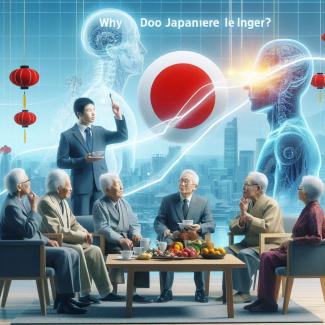
Japan is known for its high life expectancy and has several cultural and lifestyle factors that contribute to longevity. While there is no single "technique" for long life, the following elements are often associated with the Japanese approach to longevity:
- Healthy Diet: Japanese cuisine is often considered one of the healthiest in the world. It includes a lot of fresh fish, vegetables, and fermented foods like miso and natto. The traditional Japanese diet is low in saturated fats and sugars and high in nutrients. This diet is thought to contribute to overall health and longevity.
- Portion Control: Japanese culture promotes the idea of eating until you are about 80% full, a practice known as "hara hachi bu." This can help prevent overeating and obesity, which are linked to various health issues.
- Green Tea: Green tea is a popular beverage in Japan, and it is rich in antioxidants, particularly catechins. These antioxidants are believed to have various health benefits, including reducing the risk of heart disease and cancer.
- Regular Physical Activity: Many Japanese people incorporate physical activity into their daily routines. Walking, cycling, and other low-impact exercises are common. Exercise helps maintain a healthy weight and supports cardiovascular health.
- Social Connections: Strong social networks and community ties are common in Japan. These connections provide emotional support and a sense of belonging, which can contribute to mental and emotional well-being.
- Stress Management: Practices such as meditation, mindfulness, and relaxation techniques are used to manage stress and promote mental health. The Japanese practice of forest bathing (Shinrin-yoku) involves spending time in nature to reduce stress and improve overall well-being.
- Healthcare System: Japan has a highly developed healthcare system that provides accessible and quality medical care. Regular check-ups and early detection of health issues are emphasized.
- Elderly Care: Japan places a strong emphasis on caring for its elderly population. There is a culture of respecting and supporting the elderly, and this can lead to better mental and emotional well-being in later years.
- Hygiene and Cleanliness: Good hygiene practices, such as regular handwashing and cleanliness in public spaces, help prevent the spread of disease.
- Education: Japan has a strong education system, and a high level of education is often associated with better health and longevity.
It's important to note that longevity is the result of a combination of factors, including genetics, environment, lifestyle, and healthcare. While the Japanese approach to life certainly plays a role, it is not the only factor that contributes to their high life expectancy.






